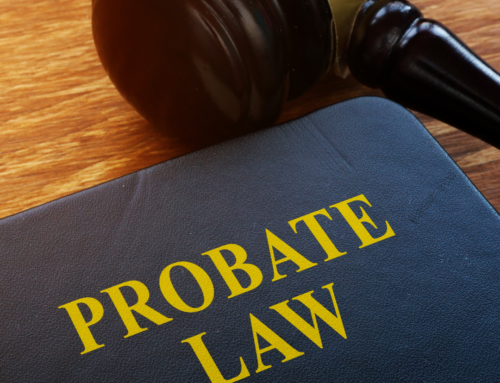December 2020
We love to help clients start and grow successful businesses, bring ideas to market and create value. We also love to help client protect what they have built. One of the ways we are called upon to do so is when the need arises to file or defend against a lawsuit. No rational business person wants to file a lawsuit unless they absolutely have to, and of course no one wants to defend against one. It is expensive. It is stressful. It is time consuming.
What can you do as a business owner to avoid litigation? Obviously there is no global panacea. All business involves the risk of litigation. But embracing the following five “good habits” can help reduce the likelihood that you do.
Keep Good Records
This includes things like financial and wage bookkeeping, invoices, correspondence, employee records and grievances – anything that might conceivably become evidence one day. The better your records, the easier it will be to make a strong case for your own good conduct early on, or spot potential risks before they balloon into serious problems. Good record keeping practices also help attorneys to review relevant documentation early in pre-litigation, hopefully leading to earlier and better outcomes.
This is an especially useful piece of advice regarding allegations of misconduct by an employee. If your HR department has a robust process for documenting and sufficiently addressing employee grievances, it will go a long way toward limiting employment lawsuits to begin with.
Follow the Law
This may sound obvious; and in many ways it is. Perhaps a better way to phrase this point is to say that you should make sure you know what laws apply to your business and stay up to date on statutory and regulatory developments as they occur. If you work in a relatively novel and heavily regulated industry (e.g. cannabis), this is probably something you do already. But almost every California business faces a dense and ever-changing regulatory landscape.
Are you up to date on wage statement requirements, overtime law, and the most recent definition of an independent contractor? Any business with employees needs to know these things. How have safety standards for customer interactions changed since the most recent spike in Covid cases? That issue is especially key for the service and hospitality industries; but it arises in many other contexts as well.
The bottom line is that the better you know what the law requires of you, the better prepared you will be to limit liability.
Train Your Employees
This includes things like sexual harassment and sensitivity training, but also the fundamentals of workplace safety and basic job skills. Depending on the scope of your employees’ duties, it might also include training on what they can and cannot do when negotiating on behalf of the company, or simply representing it with customers and the public at large. Broadly speaking, employers are responsible for their employees’ on-the-job conduct, and are bound by the claims and agreements of employee-agents acting on their behalf.
Well trained employees are less likely to engage in conduct that could give rise to a lawsuit, less likely to injure themselves at work, and more likely to recognize when they are in over their heads in a negotiation and report back to senior management for further instruction.
Use Contracts Specific to Your Needs/Don’t Sign Anything You Don’t Fully Understand
Outside of employment cases, contract disputes are among the most common sources of business litigation. Too often, we see people rush into agreements without reading the fine print; or signing contracts with clauses that either insufficiently address foreseeable risks or fail to favorably account for unforeseeable risks. And this is to say nothing of genuinely abusive contracts bad actors might use to bind your company to terms that are not to its benefit. How many vendor forms do you sign off on every month, without reading or thinking about what kind of terms you are agreeing to? What’s the dollar value and risk to you if something goes astray?
Oftentimes managers or owners will use old or outdated contracts simply because they have them already. Or they will pull something from the internet that may or may not actually serve their intended purpose. A good rule of thumb is that any complex agreement should probably be tailored specifically for that individual transaction; and if your business involves frequent use of standard agreements, make sure they’re being updated periodically to reflect changes to the law as well as your evolving business needs.
When in Doubt, Seek the Advice of Counsel
I cannot tell you how many times I’ve thought to myself “If only they’d come to me six months ago, we could have resolved this quickly and cheaply.” As the saying goes, “An ounce of prevention is worth a pound of cure.”
You are almost always better off bringing any possible problem to the attention of reliable counsel as early as possible. Attorneys are trained to recognize legal issues, identify risks, and forecast possible outcomes, which helps clients decide on a course of action, including going to to court if necessary, that matches the client’s tolerance for risk. A client’s problem is a chance for us to do our best.
If you have any questions about good business habits to help prevent litigation, please reach out to me or one of my FLAS team members.

Direct: (805) 966-7599
DISCLAIMER: This Advisor is one of a series of business, real estate, employment, estate planning and tax bulletins prepared by the attorneys at Fauver, Large, Archbald & Spray, LLP. This Advisor is not exhaustive, nor is it legal advice. You should discuss your particular situation with us or with your own attorney. Our legal representation is only undertaken through a written engagement letter and not by the distribution or use of this Advisor.





